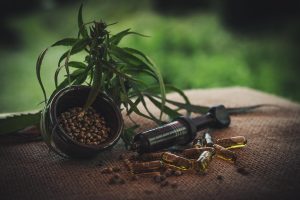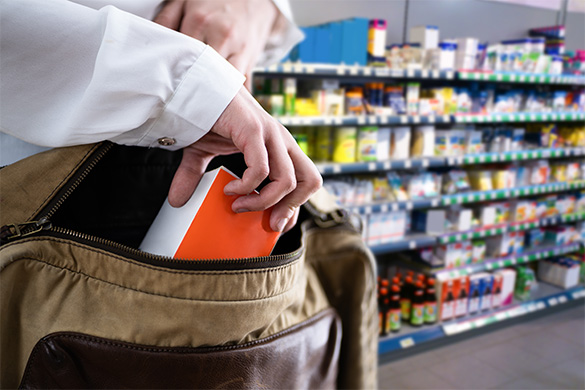The hours following an intense workout are often marked by muscle soreness, inflammation, and the body’s desperate attempt to repair microscopic damage caused by exercise. While traditional recovery methods like ice baths and protein shakes remain staples, a growing number of athletes and fitness enthusiasts are turning to hemp-based products as a natural alternative for managing post-exercise inflammation and accelerating the healing process.
Hemp products derive their therapeutic potential from compounds naturally present in the Cannabis sativa plant. The nutritional profile extends beyond the well-known cannabinoids, as cannabis seeds themselves contain a rich array of essential fatty acids, proteins, and minerals that support overall recovery. Research published in recent years has highlighted how these compounds work together to reduce inflammation markers and promote tissue repair at the cellular level.
The appeal of hemp-based recovery products has grown alongside the increasing accessibility of cultivation information and materials. Many fitness enthusiasts interested in natural wellness have discovered that autoflower seeds flower without any reliance on specific light cycles, which make them an attractive option for those who want to explore home cultivation of their recovery supplements. This self-sufficiency approach aligns with the broader trend towards personalised, natural health solutions in the fitness community. Alongside hemp products, many athletes also explore beetroot supplements for improved stamina and recovery, with plenty of convenient options available on https://www.amazon.com/
The Science Behind Hemp’s Recovery Properties
Hemp contains over 100 different cannabinoids, with CBD (cannabidiol) being the most studied for its anti-inflammatory properties. Clinical studies have shown that CBD interacts with the body’s endocannabinoid system, which plays a crucial role in regulating inflammation, pain perception, and immune response.
Key Mechanisms of Action
The therapeutic effects of hemp-based products in recovery stem from several biological pathways:
- Inflammation reduction: CBD inhibits the activation of inflammatory cells and reduces the release of pro-inflammatory mediators.
- Pain modulation: Cannabinoids interact with pain receptors, potentially reducing the perception of exercise-induced discomfort.
- Muscle relaxation: Hemp compounds may help reduce muscle tension and spasms that commonly occur after intense training.
- Sleep enhancement: Better sleep quality supports the body’s natural recovery processes.
These mechanisms work together to create a comprehensive recovery support system that addresses multiple aspects of post-exercise healing.
Types of Hemp-Based Recovery Products
The hemp recovery market offers several distinct product categories, each designed to address different aspects of post-exercise healing.
Topical Applications
Hemp-infused creams, balms, and oils designed for direct application to sore muscles have gained significant popularity among athletes. These products allow for targeted relief without systemic absorption, making them ideal for addressing specific areas of discomfort. The addition of other natural ingredients like arnica, menthol, or capsaicin can enhance the anti-inflammatory and pain-relieving properties.
Oral Supplements and Oils
Hemp-derived CBD oils and capsules offer systemic support for recovery by working throughout the body’s systems. These products are particularly effective for overall inflammation reduction and sleep quality improvement. Dosing for oral hemp products varies considerably based on individual factors such as body weight, metabolism, and sensitivity, and can be complemented by nitric oxide supplements to further support circulation and recovery.
Timing and Application Strategies
Logically, the effectiveness of any product can vary depending on when and how it’s used in relation to training sessions.

Pre-Workout Considerations
While hemp products are primarily used for recovery, some athletes incorporate them into pre-workout routines to potentially reduce exercise-induced inflammation from the outset. However, timing is crucial, as some hemp products may cause drowsiness or reduced alertness.
For those choosing to use hemp products before training, micro-dosing (2-5mg CBD) taken 30-60 minutes prior to exercise may provide anti-inflammatory benefits without compromising performance.
Post-Workout Recovery Protocols
The most effective use of hemp-based products typically occurs in the immediate post-workout window when inflammation peaks. A structured approach might include:
- Immediate application (0-30 minutes post-exercise): Topical hemp products applied to worked muscles.
- Systemic support (30-60 minutes post-exercise): Oral CBD oil or supplements to address overall inflammation.
- Evening enhancement (2-3 hours before bed): Additional CBD to support recovery sleep.
This layered approach maximises the anti-inflammatory benefits while supporting the body’s natural recovery timeline.
The Bottom Line on Hemp Recovery
Hemp-based products offer anti-inflammatory benefits that can complement traditional methods. The key to success lies in approaching hemp recovery products with realistic expectations and a willingness to experiment with timing, dosing, and product types. Remember that hemp products are not replacements for fundamental recovery practices like proper nutrition, hydration, and sleep. Instead, they should be a part of a comprehensive recovery strategy that aligns all of these fundamentals.








